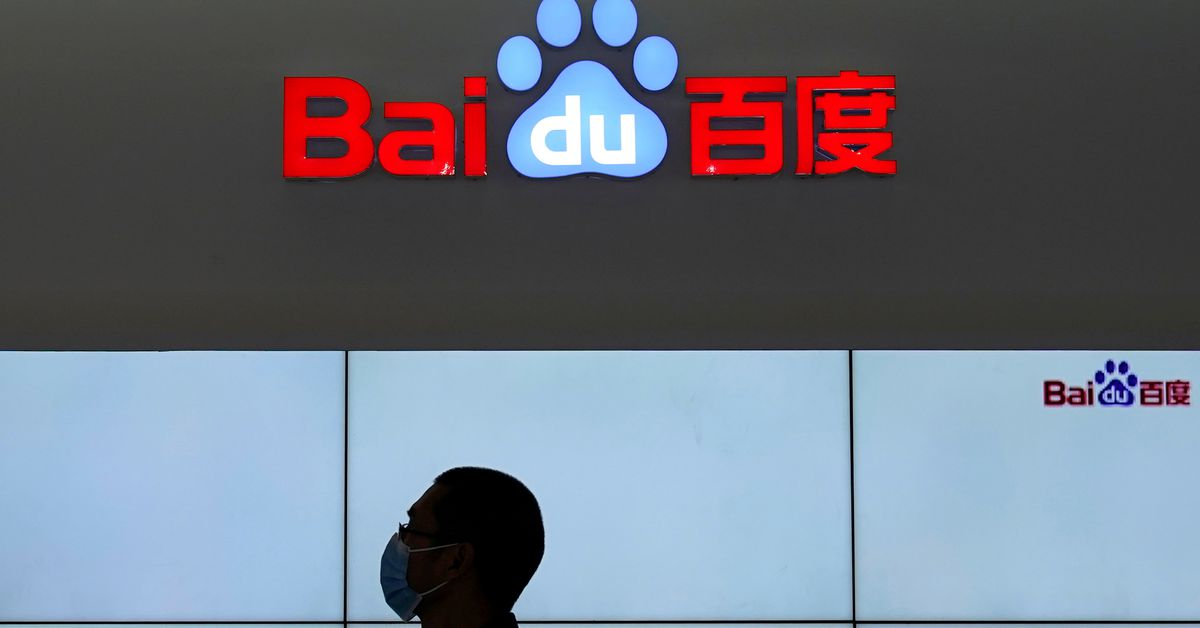Nov 17 (Reuters) – Baidu Inc beat quarterly revenue and profit estimates on the strength of its cloud business, but warned that China’s regulatory crackdown and the pandemic would weigh on advertising sales in the coming quarters.
Beijing’s wide-ranging crackdown has forced some of its largest companies such as Alibaba (9988.HK) and Tencent (0700.HK) to change what were previously considered regular market practices. The crackdown has also dented advertising spending.
“Our ad spend has been impacted by sectors like education, real estate and home furnishing, travel and franchising as we expect this headwind to continue in the near term,” said Chief Executive Robin Li on a conference call.
Earlier this month, Tencent Holdings (0700.HK) warned the outlook for the advertising sector would remain weak into next year. read more
“The slowing down ad revenue growth was mainly on the macro headwinds, plus some regulation impacts on few verticals,” Connie Gu, analyst at BOCOM International Securities said.
A logo of Baidu is seen during the World Internet Conference (WIC) in Wuzhen, Zhejiang province, China, November 23, 2020. REUTERS/Aly Song
Read More
Baidu also said it expected to see its businesses like e-commerce benefit from the gradual opening up of the country’s tech platforms to each other though it said it was not immediately able to quantify the impact.
The company, China’s closest equivalent to Google, has forayed into AI, cloud and autonomous driving to supplement its core search business that has been pressured by competition.
Baidu’s largest segment, online marketing, rose 6% in the reported quarter. However, the growth rate has been slowing in the last two quarters.
Baidu, which forecast current-quarter revenue in line with estimates, reported third-quarter revenue of 31.92 billion yuan ($5.00 billion) versus estimates of 31.71 billion yuan. On an adjusted basis, Baidu earned 14.66 yuan per ADS, compared to 12.81 yuan per ADS estimates.
The company’s U.S.-listed shares, which have slumped 21% this year, were up about 1% premarket.
($1 = 6.3811 Chinese yuan renminbi)
Reporting by Tiyashi Datta, Akash Sriram in Bengaluru and Brenda Goh in Shanghai; Editing by Shailesh Kuber
Our Standards: The Thomson Reuters Trust Principles.
